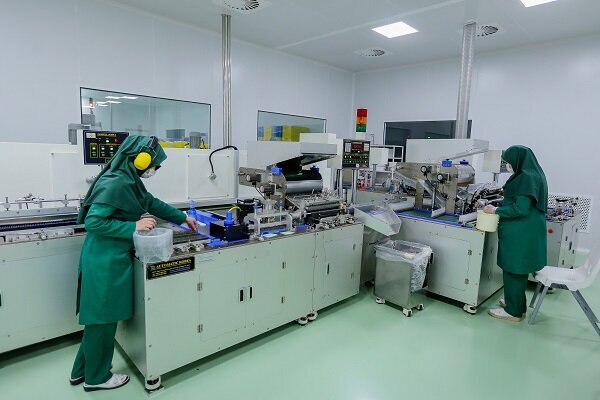Iranian women making headway in technology
Iranian women making headway in technology
TEHRAN – Having made great strides in manufacturing high-tech products and growing the knowledge-based economy, Iranian women are conveying to the world the message that they have the potential to shine in the field of ‘technology’, the same as other fields.

They have managed to shine brilliantly in different global events, featuring Iranian women’s abilities to the world.
The percentage of female CEOs and chairpersons of the board of directors of knowledge-based companies has increased noticeably over the past three years.
The number of female managers has almost doubled, rising from 1,092 in the Iranian calendar year 1400 (2021-2022) to 2,250 by the end of the first nine months of the current Iranian year that started on March 20.
However, despite the rise in the presence of leading women in the technology and innovation sector in the country in recent decades, they have remained a significant minority, compared to men, in the research and scientific sectors, the private sector, as well as technological businesses.
Only 12 percent of modern, technological firms are founded by Iranian women. Moreover, out of 27,237 individuals who are members of the board of directors of knowledge-based companies, only 5,154, making up 19 percent of the members, are women.
In the latest international event, four Iranian women namely Azam Karami, Mahvash Abyari, Marzieh Ebrahimi, and Fatemeh Hosseini made history.
They were among the winners of the BRICS Women’s Startups Contest 2024, which is one of the main programs of the BRICS Entrepreneurs Forum. The contest’s international panel of judges considered more than 1,000 applications from 30 countries.
The contest winners included 26 projects in such areas as innovation in energy and infrastructure facilities; artificial intelligence technologies in medicine, education, agriculture, and the aviation industry; the fight against cancer and infertility; and robotics. Iranian women rank second in terms of the number of winners in startups contest following Russia.
Azam Karami holds a Ph.D in electrical engineering (telecommunication systems). She is managing a knowledge-based company that provides technological services and develops products in the fields of artificial intelligence, robotics, drones and remote sensing, intelligent monitoring, data mining, and the internet of things.
Her startup project in BRICS was ‘Automatic Fault Detection in Power Transmission Lines’ (AFTL) which uses deep learning techniques in order to find more than 80 types of defects in power transmission lines. In terms of technology readiness level (TRL), it is at TRL 8.
Fatemeh Hosseini is the manager of a knowledge-based company that manufactures new products to improve the life of patients with brain and nerve disorders.
Her product, Intelligent Spoon for Tremor Alleviation (ISTA) helps patients with tremors eat independently and without stress by reducing tremors using motion sensors and an intelligent high-speed control system.
Iran is the third country to have the technology, following the U.S. and China.
Marzieh Ebrahimi is the founder and CEO of a company. Her winning project was titled ‘Immune Cell Bank for the Treatment of Cancer and Autoimmune Diseases’. Natural killer (NK) cells play a crucial role in eliminating transformed or dysfunctional cells, thus maintaining overall health.
Mahvash Abyari’s startup project was ‘Insightfully Scanned Glucose Monitoring’. The platform analyzes patient behavior using artificial intelligence and machine learning algorithms, providing reports to doctors to help them make more targeted prescriptions for patients.
Nafiseh Hatami, the manager of a knowledge-based company, has made a ‘comprehensive digital authentication platform’.
Utilizing the most up-to-date artificial intelligence algorithms, this knowledge-based company has succeeded in implementing digital authentication and digital signatures for businesses in no time and has developed the digital economy and digital transformation in Iran.
MT/MG
source: tehrantimes.com